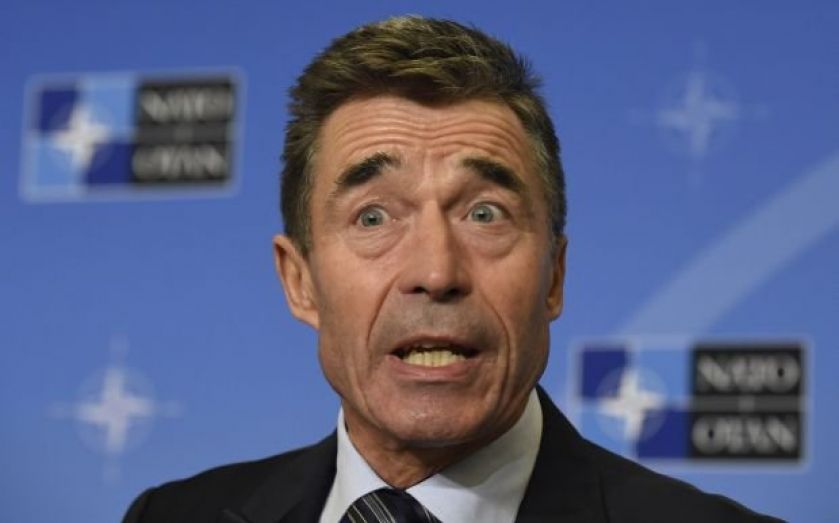Nato can save us from Putin – but only if Europe gets serious about its military

For my sins, early in my Washington career I was sent to literally scores of high-level North Atlantic Treaty Organisation (Nato) meetings, frustratingly all on the same beside-the-point topic. Stripped of its finery, basically every conclave revolved around finding another mission for the most successful politico-military alliance in the history of the world, now that the Cold War had been successfully concluded on the West’s terms.
Beyond loving the European hotels and mingling with people I’d recently read about at university, I must say that I was suspicious of the whole process from the beginning. Every meeting seemed to bring another, even more far-fetched new mission for Nato: it had to go out of area or out of business, it had to evolve into a global policeman, it had to change itself into a peace-keeping organisation now that wars were over.
This endless list seemed increasingly like special pleading to me. What was wrong with Nato’s original mission, to serve as a form of political life insurance for a continent that, in the twentieth century, had surely been in need of some? I admitted that it was unsexy, unglamorous, but it was vital just the same. We simply did not know what would happen with the end of the Cold War, so surely paying up on the old policy made sense?
To put it mildly, mine was the minority view. But now, suddenly, with obvious threats to both its east (Putin) and south (Radical Islam), Nato is no longer in search of some sort of new raison d’etre to ward off its supporters’ existential fears about its continued relevance. What needs to happen is that the life insurance premium of burden sharing must finally be paid up.
For the Nato meeting taking place in Wales this week is the alliance’s most important in decades. Following on from it, either Nato will begin to emerge as a re-tooled grouping fit for purpose in the multipolar world, or it will remain a Cold War museum. There is simply no middle way anymore.
Going back to first principles is the crucial intellectual first step in saving the alliance. At its core, Nato is simply an organisational expression of Dumas’s Three Musketeers’ rousing pledge, “All for one, and one for all”. Article Five of its founding Treaty of Washington states that an attack on one member state will be viewed as an attack on all, signifying any member in military peril can currently rely on the vast power of the 28 countries in Nato’s collective force.
This brilliantly simple but profound principle has withstood all that has been historically thrown at it since the alliance’s founding in 1949. But a neglected, ossified Article Five is now in peril. This week’s meeting must be the start of a single-minded effort to fix this central concept.
But tough love is in order. Nato’s members have solemnly sworn to spend at least 2 per cent of GDP on defence, making sure their militaries are sufficiently robust to make common deterrence credible. However, some of the alliance’s key members must have been crossing their fingers of late in terms of that pledge.
As of today, the US foots the bill for fully three-quarters of Nato’s budget, a fact that through the years has had me shaking with rage. In 2013, only four of the alliance’s 28 members met the 2 per cent threshold: the US, the UK, Greece, and Estonia. Remove the US from the 2013 spending figures, and average European defence spending amounts to 1.6 per cent of GDP, with economic powerhouse Germany managing only a laughable 1.3 per cent.
On behalf of my countrymen, I must scream from the rooftops, “Enough!” An America in fiscal difficulty, with declining roads, schools, and high-rates of long-term unemployment can no longer afford to foot the bill for the rest of the West: it isn’t fair and it isn’t tenable. There are other options for the US, such as the Claude Rains/Casablanca strategy of merely “rounding up the usual suspects” on a case-by-case basis, cherry-picking allies, and bypassing Nato entirely.
The meeting in Wales must lead to iron-clad commitments on the 2 per cent threshold, and America must be ready to say that those countries unwilling to contribute to the common defence at this modest level had better stop relying on Article Five. In a multipolar era, commitments amount to a two-way street. If Europeans – chastened by what Ukraine means about the re-awakening of history – are serious, Nato can save us all. But it is up to them to act, and now.
Dr John C Hulsman is senior columnist at City A.M. He is a life member of the Council on Foreign Relations, and author of Ethical Realism, The Godfather Doctrine, and most recently Lawrence of Arabia, To Begin the World Over Again. He is president and co-founder of John C Hulsman Enterprises (www.john-hulsman.com), a global political risk consultancy, and available for corporate speaking and private briefings at www.chartwellpartners.co.uk